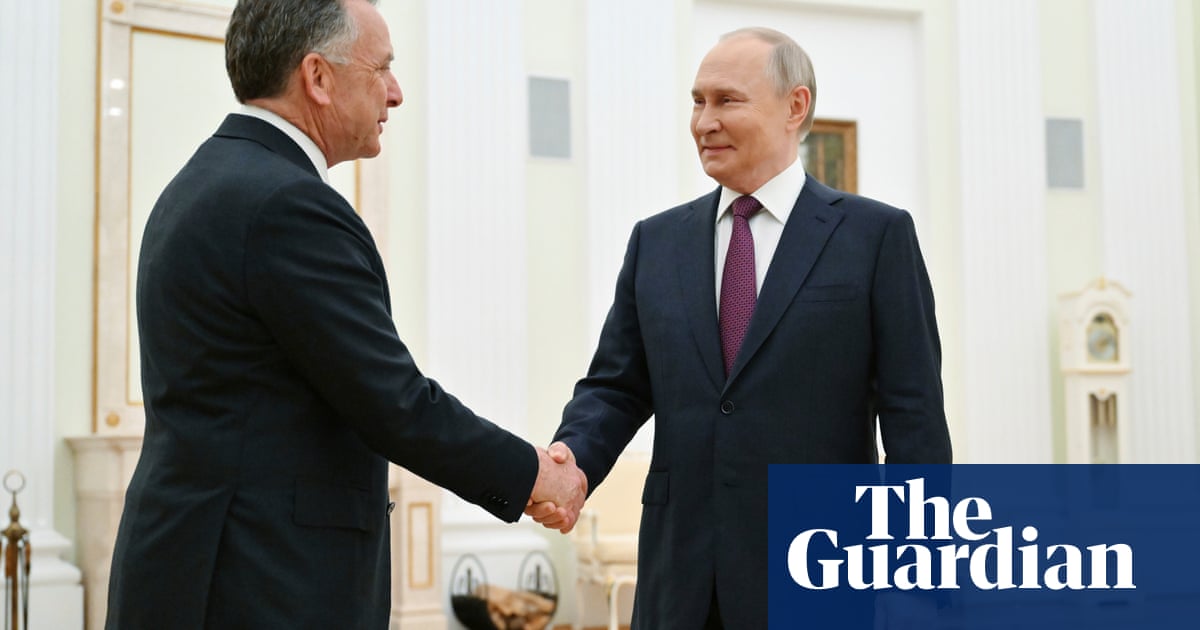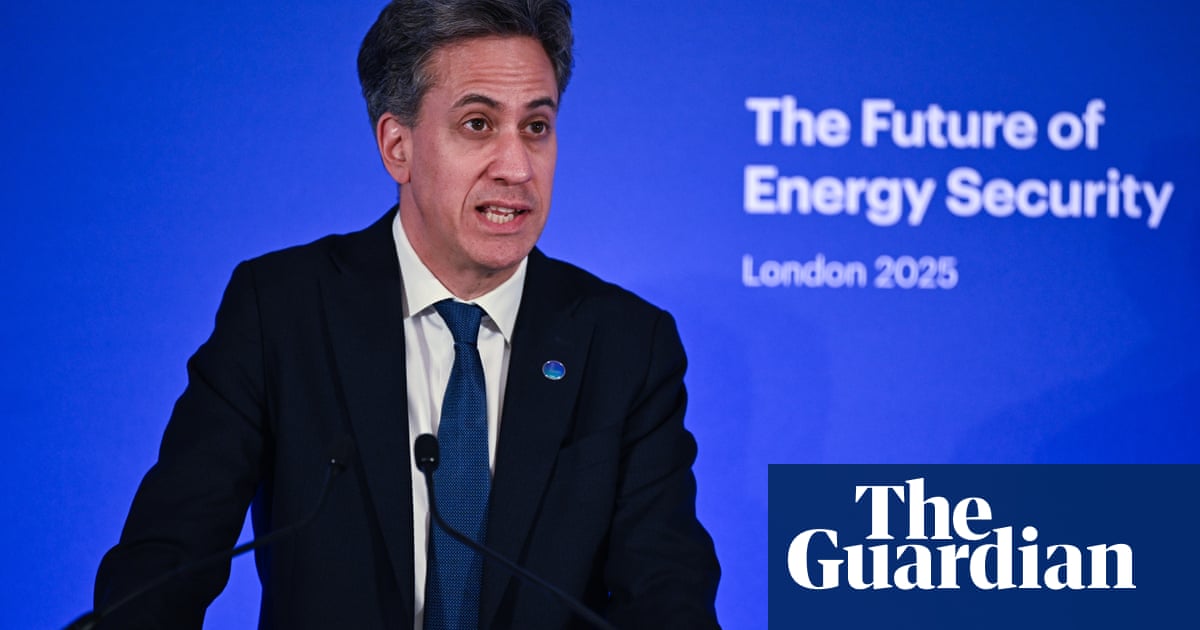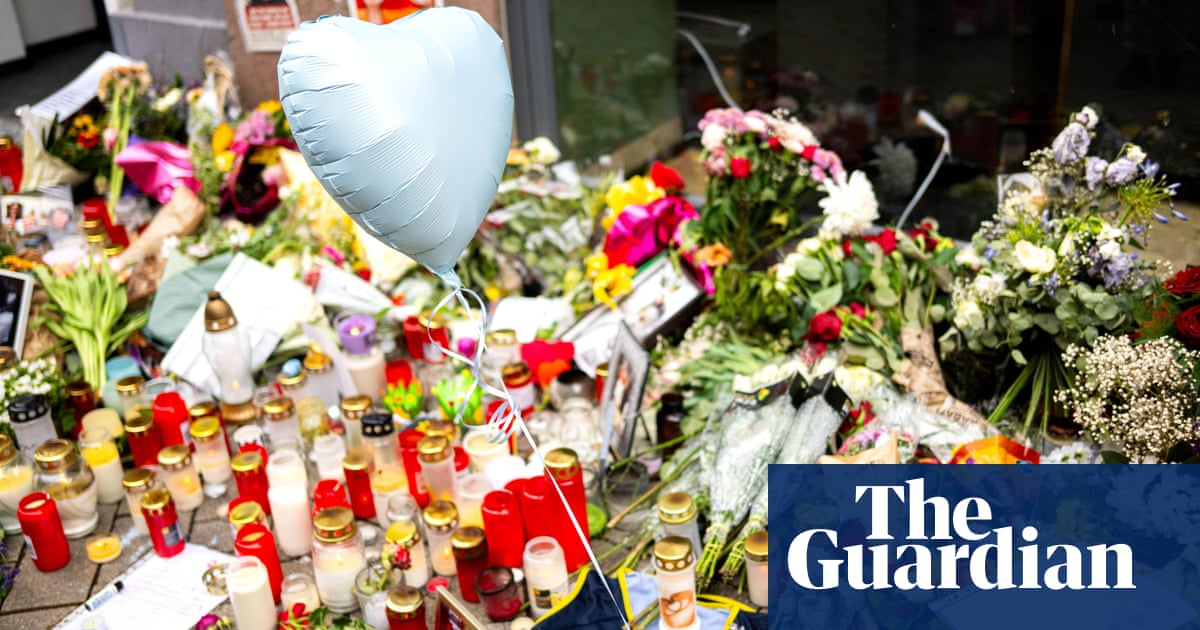Inspiration on how to beat back authoritarianism is in short supply, but those searching for hope in these dark times might consider Latin America.
It’s not the first place that comes to mind when thinking about democracy, associated as it is with coups, death squads, dictatorships, inequality, drug violence and now a country, El Salvador, offering itself up to Donald Trump as an offshore prison colony for deportees.
It is a bleak place in many ways, especially for the jobless and the poor who flee their home countries in search of a better life somewhere else, often in the United States. The bleakness, though, only highlights the paradox: for all its maladies, for all its rightwing dictators and leftwing caudillos, for all its failings when it comes to democratic institutions, the region’s democratic spirit is surprisingly vital.
Other areas of the world emerged broken from the cold war, roiled by resource conflicts, religious fundamentalism and ethnic hatreds. Think of the bloody Balkans of the 1990s or 1994’s Rwandan genocide.
Not Latin America, where, by the time the Berlin Wall fell in 1989, most of its anti-communist dictatorships had given way to constitutional rule. With the jackboot off their necks, reformers went on the offensive, seeking to redeem not just democracy but social democracy.
Today, in the United States at least, the concept of democracy is generally defined minimally, as comprising regularly held elections, a commitment to due process to protect individual rights, and institutional stability. But earlier, in the middle of the last century, a more robust vision that included economic rights prevailed – that indeed the second world war was fought not just against fascism but for social democracy. “Necessitous men are not free men,” Franklin Delano Roosevelt liked to say. Reporting from Europe in late 1945, William Shirer described a groundswell demand for social democracy, in an article headlined: Germany is finished, communists distrusted, majority wants socialism.
Latin America joined in the demand, and by 1945 nearly every country understood citizenship as entailing both individual and social rights. Latin Americans broadened classical liberalism’s “right to life” to mean a right to a healthy life, which obligated the state to provide healthcare. “Democracy, political as well as social and economic,” wrote Hernán Santa Cruz, a childhood friend of Salvador Allende and a Chilean UN delegate who helped Eleanor Roosevelt draft the Universal Declaration of Human Rights, “comprises, in my mind, an indivisible whole”.
That whole was shattered to pieces by the death-squad terror of the cold war, much of it patronized by Washington, followed by the free-market neoliberal economics pushed on Latin America during that war.
Yet once the repression abated and citizens were free to vote their preference, they began to elect social democrats as presidents, men and women who represented a variety of historical social movements: feminists, trade unionists, peasant organizers, Indigenous rights campaigners, heterodox economists, environmentalists and liberation theologians. Today, a large majority of Latin Americans live in countries governed by the center left. Despite the best efforts of Friedrich von Hayek and his libertarian followers in the region to convince them otherwise, most Latin Americans do not believe that welfare turns citizens into serfs.
Pankaj Mishra, in his survey of the horrors inflicted on Palestinians, has written about the “profound rupture” in the “moral history of the world” since 1945. No region has done more to heal that rupture than Latin America.
And no region has had as much experience beating back fascists, long after the second world had ended, than Latin America. Rightwing authoritarians, gripped by the same obsessions that move Trump supporters in the United States, have some momentum, though they haven’t been able to escalate occasional electoral victories, including in Argentina and Ecuador, into a full-on continental kulturkampf.
Center-left democrats hold the right at bay by putting forth an expansive social-democratic agenda, one flexible enough to include demands for sexual and racial equality. As the US rolls back abortion rights, momentum in Latin America moves in the other direction – Argentina, Mexico and Colombia either decriminalizing or legalizing abortion. Gay marriage and same-sex civil unions have been recognized in 11 countries.
Spasms of ethnonationalist rage gripped much of the world the 1990s – Indonesia’s 1998 anti-Chinese rampage, for example. In contrast, Indigenous peoples in countries including Bolivia, Ecuador, Chile and Guatemala burst into politics as the best bearers of the social democratic tradition, adding environmentalism and cultural rights to the standard menu of economic demands. Today, many countries have retreated behind an aggrieved nationalism. For the most part, Latin Americans have not. Their reaction to the depredations of corporate globalization is rarely expressed in xenophobic, antisemitic or conspiratorial tropes, as a struggle against “globalists”. Nationalism in Latin America has long been understood as a gateway to universalism.
Frontline activists stand unbowed before police batons and paramilitary guns. In 2022, Latin America clocked the world’s highest murder rate of environmental activists. Unionists, students, journalists, and women’s and peasant rights activists are assassinated at a regular clip. Yet organizing continues. In Brazil during the four-year presidency of the Trump-like Jair Bolsonaro (2019-2023), the Landless Workers’ Movement, already the largest social movement in the world, grew even larger.
When it comes to interstate relations, Latin America is one of the most peaceful regions. There is no nuclear competition, thanks to one of the most successful arms control treaties in history, the 1967 Treaty for the Prohibition of Nuclear Weapons.
In 1945, Latin American diplomats drew on their long history in opposing Washington’s interventionism to play a key role in founding the liberal multilateral order, the global system of governance now upended by Trump. Most importantly, the region’s leaders insisted that nations should be organized around the premise of cooperation, not competition, that diplomacy should be used to settle differences, and that war should be a last resort. Their post-cold war counterparts have loudly defended these principles, first against George W Bush during the war on terror, and more recently against Joe Biden and Trump, insisting that the art of diplomacy must be relearned. “Brazil has no enemies,” the country’s defense minister once said, notable considering that the Pentagon has marked out the entire globe as a battlefield.
Brazil’s Luiz Inácio Lula da Silva and Colombia’s Gustavo Petro, among others, have criticized the return to power politics and balance-of-power diplomacy. If the past teaches anything, they say, it is that opening a belligerent multi-front balance of power – with the United States pushing against China, pushing against Russia, with all countries, everywhere, angling for dominance – will lead to more confrontation, more war. As with the United States’s shapeshifting, amorphous domestic culture war, there is no clear endgame to this new era of militarized economic competition, of war by proxy and privateer, which only increases the odds of conflict spinning out of control.
One need not romanticize Latin America. To recognize the strength of the social democratic ideal in Latin America does not require one to celebrate all those who call themselves socialists, in Nicaragua and Venezuela, for example. And even those we might celebrate, such as Mexico’s Claudia Sheinbaum or Chile’s Gabriel Boric, preside over states loaded with significant amount of repressive power, often directed at some of their country’s most vulnerable, such as Mapuche activists in southern Chile.
after newsletter promotion
But there is no other region of the world that so persistently continues to insist on taking the Enlightenment at its word, whose leftwing politicians and social movements win by advancing a program of universal humanism. Trump has transformed the United States government into a predator-state, a tormenter of citizens and non-citizens alike. Latin American social democrats – Lula in Brazil and Mexico’s Sheinbaum, Uruguay’s Yamandú Orsi, and Petro in Colombia, among others – do what they can to use state power to fulfill an obligation: the ideal that all people should live in dignity.
The forcefulness in which Latin American leaders such as Lula and Sheinbaum defend social rights contrasts with the timidity of the Democratic party. Biden did pass legislation suggesting it was breaking with the old neoliberal order. But Biden’s team couldn’t find its voice, unable to link a reinvestment in national industry with a renewed commitment to social citizenship. Democrats are shrill in denouncing Trump’s extremism even as they are timid in offering an alternative.
Confronted with a existential crisis that people feel in their bones, the Democratic party puts forth weak-tea fixes in an enervating technocratic jargon, its counselors saying the lesson of Kamala Harris’s loss is that the party has to think even smaller, has to shake off its activist constituencies and move to the center.
A recent op-ed in the New York Times urged Democrats to lay out their own Project 2029, to counter the conservative thinktank Heritage Foundation’s influential Project 2025. What did the author of the op-ed believe should be in this new project? A call for national healthcare? No. Affordable housing? No. Paid vacations, universal childcare or an increase in the minimum wage? None of that. He suggested that the Democrats promise to streamline regulations and improve “the quality” of “customer-service interactions”.
Woodrow Wilson imagined a world without war. FDR imagined a world without fear or want. Today’s would-be governing liberals in the United States imagine noting. They treat the promise of a humane future – or of any future at all – like a weight from the past, hard to bear, easy to toss aside.
Democrats in the United States can’t simply mimic social democrats in Latin America; they operate in vastly different political contexts. But Latin America is a useful mirror, reflecting the considerable distance Democrats in the US have drifted from New Deal values. They might want to read Roosevelt’s Faith of the Americas speech, where he said that the best way to defuse extremism was to use government action to ensure “a more abundant life to the peoples of the whole world”.
Latin America social democrats today – and not the Democratic party in the United States – are the true heirs of FDR’s vision. They know that if democracy is to be something more than a heraldic device, it must confront entrenched power. Latin American reformers know that the way to beat today’s new fascists is the same as it was in the 1930s and 1940s: by welding liberalism to a forceful agenda of social rights, by promising, in a voice simple, clear and sure, to improve the material conditions of people’s lives.
“People have to have hope again,” as Lula put it in his most recent successful run for re-election, “and a full belly, with morning coffee and lunch and dinner”.
What’s giving me hope now
What gives me hope is that in a place like Latin America, where the forces of reaction are so fierce, social movements led by feminists, peasants, first peoples, and gay and trans activists continue to fight back against fierce repression with enormous courage. Political theorists like to measure “democracy” according to institutional stability and free elections, and by that standard, many places in Latin America come up short. But if we measure democracy by courage, by a tenacity to continue to fight for universal, humane values, for a more sustainable, more equal, more human world, then Latin America carries forward the democratic ideal.
-
Greg Grandin, the C Vann Woodward professor of history at Yale, is the author of a number of prize-winning books, including The End of the Myth: From the Frontier to the Border Wall in the Mind of America, which won the Pulitzer prize for non-fiction

.png) 8 hours ago
6
8 hours ago
6













































